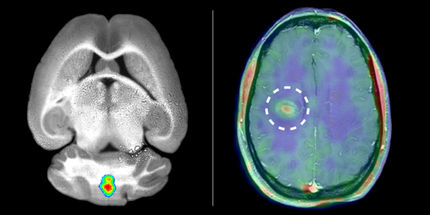Vitamin D status associated with multiple sclerosis activity
vitamin D status appears to be associated with reduced disease activity in patients with multiple sclerosis (MS) and a slower rate of disease progression, according to a study by Alberto Ascherio, M.D., Dr.P.H., of the Harvard School of Public Health, Boston, and colleagues.
MS is a common cause of neurological disability and vitamin D status may be related to the disease process, according to the study background.
Researchers examined whether blood concentration of 25-hydroxyvitamin D (25[OH]D), a marker of vitamin D status, was associated with MS disease activity and progression in patients with a first episode suggestive of MS.
Blood 25[OH]D levels were measured as part of a randomized trial originally designed to study patients given interferon beta-1b treatment. A total of 465 patients (of the 468 enrolled) had at least one 25[OH]D measurement. Patients were followed for up to five years with magnetic resonance imaging.
Increases of 50-nmol/L in average blood 25[OH]D levels within the first 12 months appeared to be associated with a 57 percent lower risk of new active brain lesions, 57 percent lower risk of relapse, 25 percent lower yearly increase in T2 lesion volume and 0.41 percent lower yearly loss in brain volume from months 12 to 60.
"Among patients with MS mainly treated with interferon beta-1b, low 25[OH]D levels early in the disease course are a strong risk factor for long-term MS activity and progression," the study concludes.
Most read news
Organizations
Other news from the department science

Get the life science industry in your inbox
By submitting this form you agree that LUMITOS AG will send you the newsletter(s) selected above by email. Your data will not be passed on to third parties. Your data will be stored and processed in accordance with our data protection regulations. LUMITOS may contact you by email for the purpose of advertising or market and opinion surveys. You can revoke your consent at any time without giving reasons to LUMITOS AG, Ernst-Augustin-Str. 2, 12489 Berlin, Germany or by e-mail at revoke@lumitos.com with effect for the future. In addition, each email contains a link to unsubscribe from the corresponding newsletter.
Most read news
More news from our other portals
Last viewed contents

Novel test for the earlier detection of multiple cancers - Thrive Launches with $110 Million Series A Financing
Nun_Buffer
Carbon_monoxide_poisoning
Erectile_dysfunction
Escherichia_coli
Archives_of_General_Psychiatry
Missense_mRNA






















































